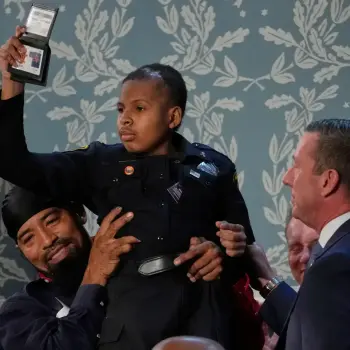The Associated Press is reporting this morning that Sunday’s Super Bowl, with 123.4 million viewers, was the most-watched program in television history. The Kansas City Chiefs and their fans are preparing for their victory parade tomorrow. A variety of outlets are offering their rankings of Super Bowl commercials from best to worst (my personal favorite was the Ben Affleck/Tom Brady/Matt Damon ad).
And people are still talking about something that did not happen during the game: the customary interview with the president of the United States. White House officials said they made the decision to skip the interview because Super Bowl viewers wanted to watch football, not the president. One official added that President Biden turned down the interview because the network would have aired just a brief clip on Sunday instead of a fuller extended version.
However, many saw the decision as evidence of Mr. Biden’s advancing age, an issue that has been especially in the news with last week’s report from special counsel Robert Hur that the president is an “elderly man with a poor memory.”
This issue is not going away for the president, or for the leading contender to replace him in the Oval Office.
The median age for US presidents
The median age for all US presidents on the day of their first inauguration is fifty-five years old. This aligns with the fact that most Americans prefer the president to be in their fifties.
Consequently, according to a new ABC News/Ipsos poll, 86 percent of Americans think Joe Biden, age 81, is too old to serve a second term as president; 62 percent say the same about Donald Trump, age 77.
This issue is not confined to the Oval Office.
According to the Census Bureau, the median age in America is 38.9 years old. However, the average ages in the House and Senate are 58 and 64, respectively.
In the Senate:
- Majority Leader Chuck Schumer is 72.
- Minority Leader Mitch McConnell is 81.
- Senators Chuck Grassley and Bernie Sanders are 90 and 81, respectively; neither has any plans to retire.
In the House of Representatives:
- Nancy Pelosi, age 83, is running for reelection.
- Bill Pascrell Jr. and Eleanor Holmes Norton are both 86.
- Harold Rogers and Maxine Waters are both 85.
- Steny Hoyer is 84.
What does the gerontological state of our leadership say about us?
“Their entire identity is tied to their jobs”
Mary Kate Cary was a speechwriter for President George H. W. Bush and serves as adjunct professor with the University of Virginia Department of Politics. She notes that most baby boomers who delay retirement do so because they can’t afford to stop working. However, the political leaders we’ve listed today have plenty of money and would enjoy government pensions and health care benefits if they retired.
In her experience, some leaders are in denial about their mortality, equating retirement with death and refusing to admit any limitations they might be facing. Others are motivated by power and ego with the belief that they’re indispensable.
And some are identity driven. Cary writes: “Many of the senior leaders I’ve seen have worked so hard for so long that their entire identity is tied to their jobs.”
Let’s reflect on Cary’s last point. People in a democracy elect leaders who represent them (in the sense of typifying them) to represent them (in the sense of acting on their behalf). In a performance-centric culture that measures success by achievements, why would our leaders not tie their “entire identity” to their jobs?
How are they different from the rest of us?
“Do vs. done”
As a wise mentor once told me, the difference between Christianity and every other worldview can be summarized by this simple formula: “Do vs. done.”
If we focus on what we do, we’re never done. We have to keep doing it with no assurance that we’ve ever done enough. If we focus on what Christ has done, however, there’s nothing we must do: “By grace you have been saved through faith. And this is not your own doing; it is the gift of God” (Ephesians 2:8).
Now we have a choice to make. We can find our identity in what we do, with all the failures and frustrations common to fallen people.
Or we can find our identity in what Christ has done, remembering every day that we are the beloved children of God (John 1:12). We can serve him, not so he will love us but because he already does. We can serve others, not so they will love us but because our Father loves them.
Imagine the difference such grace-centered, joyful living would make in our unhappy, anxious, performance-driven culture.
John MacArthur noted:
“God treated Jesus on the cross as if he lived your life so he could treat you as if you lived his.”
How will you treat yourself today?
Tuesday news to know
- Inside Israel’s daring hostage rescue in Gaza
- The music industry is going country, and so is Beyoncé
- What’s inside the Senate’s $95 billion bill to aid Ukraine and Israel and counter China
- Reluctant pastor’s son to most-viewed preacher: Shooting puts new spotlight on Joel Osteen
- On this day in 1633: Galileo arrives in Rome to face charges of heresy
Quote for the day
“At the heart of what it means to be a Christian is to receive a new identity. In Jesus, we do not lose our true selves, but we become our true selves, only in him.” —John Piper












